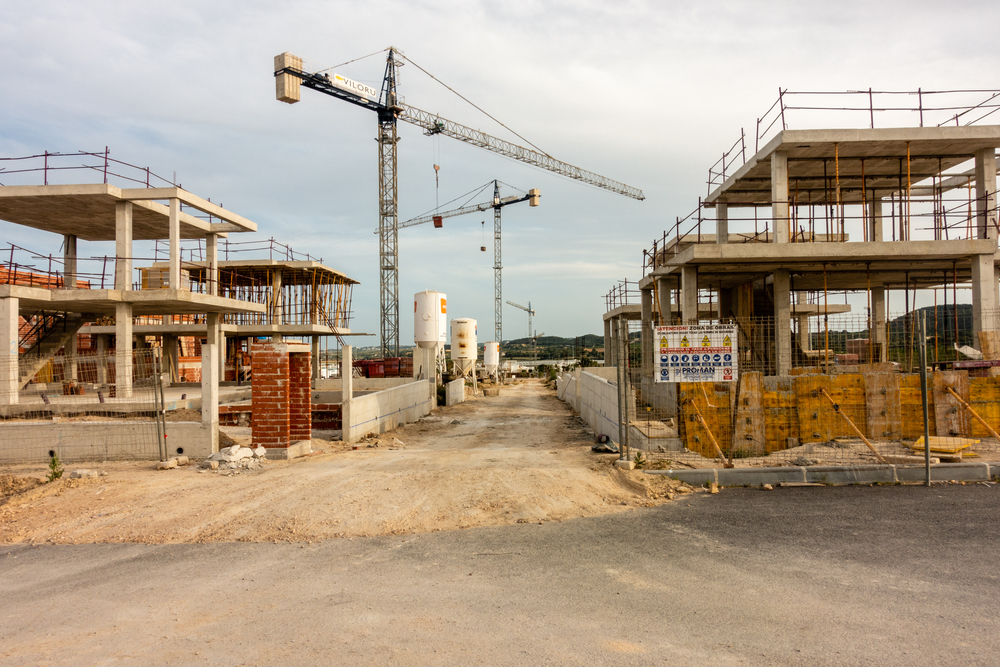If the home you are buying is under construction you need to make sure that you are familiar with the commitments the developer has to you as the buyer. We have mapped out everything you need to succeed.
The sales contract needs to be clear and specific, and contain reasonable terms
This should be included in the contract:
- Necessary information about the buyer and developer, such as name and address. If the developer is a corporation, you might need to fill in more details. Details about the notary where the contract was signed must also be included.
- All contracts should contain a detailed description of the property, with floor plan drawings, location in a commonhold property if applicable, and common areas. Any commitments to building swimming pools, tennis courts or similar must also be noted.
- Price and date of delivery, where the completion date correspond with the date when the developer receives the license confirming that the flat or house is habitable.
- Building specifications with information such as materials, colours, standard and any add-ons included in the contract (electrical appliances, air condition etc.)
- A completion certificate (called licencia de primera ocupacion) should be issued when the home is ready for someone to move in. The administration will issue this, and it confirms that the home has been built according to the drawings that the building approval was based on. It also certifies that the building meets the necessary criteria for security and living conditions. The buyer can only enter agreements for water, gas and electricity if they have this certificate.
Legal language is hard enough in your native language. Reading, understanding and renegotiating in another language is a whole other ballgame. This is where we can help
José Luis Rojas Vazquez, lawyer and partner in Vogt Law
Look out for these situations
After many years in the business we have seen enough examples of contracts stating terms that completely disregard the buyer´s rights. For one, some developers try to include clauses that makes the buyer liable for costs that the developer should pay.
Sometimes, the buyer is offered to take over the mortgage, which typically amounts to 70 percent of the total purchase cost. The buyer has no obligation to do this, and it is in fact the developer’s duty to pay the cancellation fees for their own mortgage. Therefore, you need to beware of contracts saying that the buyer has to pay these cancellation fees if they do not wish to take over the mortgage.
Another potential predicament is when the developer urges the buyer to take over the home as soon as they have the certificate of completion for construction (a license called certificado final de obra), but before the buyer is allowed to move in. It is only after a habitation certificate (called licencia de primera ocupacion) is issued, that the buyer is obligated to take over the home.
How do you change the buyer’s name in the contract?
It is possible to change the name of the buyer from yours to someone else’s in the contract, for example to your child, or a Norwegian or Spanish company. However, your right to do this without the seller’s consent must be clearly stated in the contract. If it is not, the seller may refuse a transfer of ownership without stating a reason. In cases where the home is sold to someone else before it has been completed, there are various solutions for how to divide any profit (and potential fees) between the buyer and the seller.
The developer must issue a bank guarantee
Spanish law undisputedly states that it is the responsibility of the developer to issue a bank guarantee or an insurance guarantee for the costs that have been paid during the construction period. This amount should only be used to cover the construction, and it guarantees the amount paid plus interest.
Normally, the developer should pay for issuing these costs (check the contract!), and thereafter the buyer has to return the guarantee when they sign the deed and officially take over the property.
The developer has to cover any faults or shortages
It is the developer’s duty to fix any potential mistakes and ensure that all inventory is as agreed in the new property. You should note the following three deadlines for complaints:
one year for complaints about faults and shortages that are visible, three years if they are hidden, and ten years if they are constructional. If you buy a property which the previous owner bought from the developer ½ year ago, the complaints deadline will be transferred to you. This means that you will “lose” these six months of your complaint period.
If the developer for some reason does not correct the reported mistakes as according to the law and the contract, the case must be taken into a Spanish court. This can be a dreary process.
We can build a secure bridge between you and the seller
All in all, there is plenty of factors to take into consideration before you sign a purchase agreement. At the same time, how should you be able to know your rights and duties if you are new to the Spanish property market? Legal language can be hard enough in your native language. Why would reading, understanding and negotiating contracts in another language be any easier?
This is exactly where we can help you. With our long experience and legal expertise in both Spanish and Norwegian you can trust that you will know your rights, and understand what it is that you are actually signing up for.










